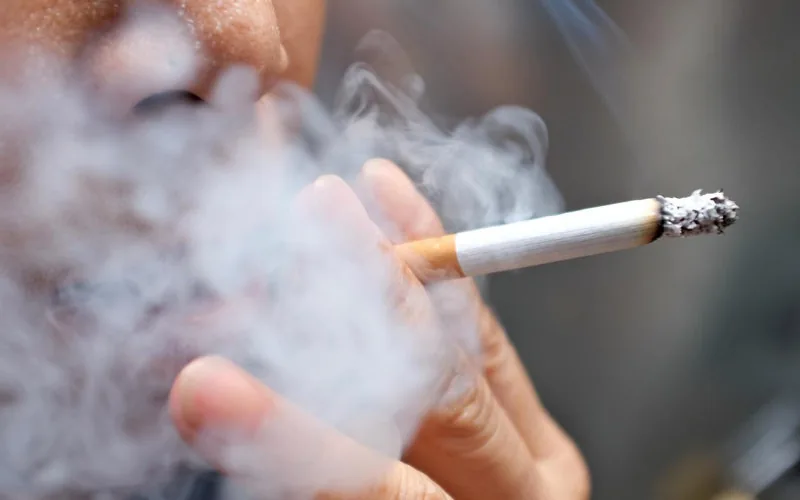Morocco Considers Strict Smoking Ban with Heavy Fines in Public Spaces

Concerned about the growth of smoking in society, its impact on public health and the Moroccan economy, the Justice and Development Party (PJD) group in the House of Representatives presents a bill that will affect Moroccans’ wallets.
Establishing a total ban on smoking in all open or closed spaces accessible to the public, such as administrations, hospitals, schools, but also in highly frequented places like cafes, cinemas, gas stations, or public transport. This is the objective of the bill initiated by the Justice and Development Party (PJD). The Islamist party proposes to ban the consumption of cigarettes, shisha, cigars, as well as the use of electronic cigarettes, in all public spaces, including educational establishments, gas stations, hotels, and even rest areas, and to prohibit their advertising or promotion.
To strengthen the fight against smoking, the PJD proposes the creation of specific smoking areas, separated from non-smoking spaces, in order to reconcile individual freedom and health protection. According to the text composed of 16 articles, it will be up to the authorities to set the technical criteria for these areas, which must comply with strict standards. The Islamist party also provides for gradual financial sanctions. Any smoker in a prohibited place is liable to a fine ranging from 500 to 1,000 dirhams, which can rise up to 5,000 dirhams in case of recidivism, reports Hespress. Fines are also provided for tobacco advertising or promotion. These fines can reach 10,000 dirhams in case of repeated violation.
In order to strengthen the protection of young people, the PJD proposes to sanction offenders who facilitate or encourage a minor to smoke, in a public or private space, with a fine of up to 10,000 dirhams. According to the text, any person caught smoking in a public place will be legally responsible for the damages caused to others, with compensation determined according to the nature of the harm (health, commercial or moral).
Related Articles
-

Border Police Crack Down on Thriving Stolen Car Trade to Morocco
1 September 2025
-

Vacation Nightmare: Dutch Teen’s Seizure at Moroccan Airport Leads to Harrowing Medical Ordeal
31 August 2025
-

Morocco’s Intelligence Services: The Unsung Heroes in Global Counter-Terrorism and Drug Busts
31 August 2025
-

Mental Health Crisis Grips Morocco: 425 Cases Spark Calls for Urgent National Action
31 August 2025
-

Vueling Expands Winter Routes: Barcelona to Morocco, Slovenia, and France
31 August 2025